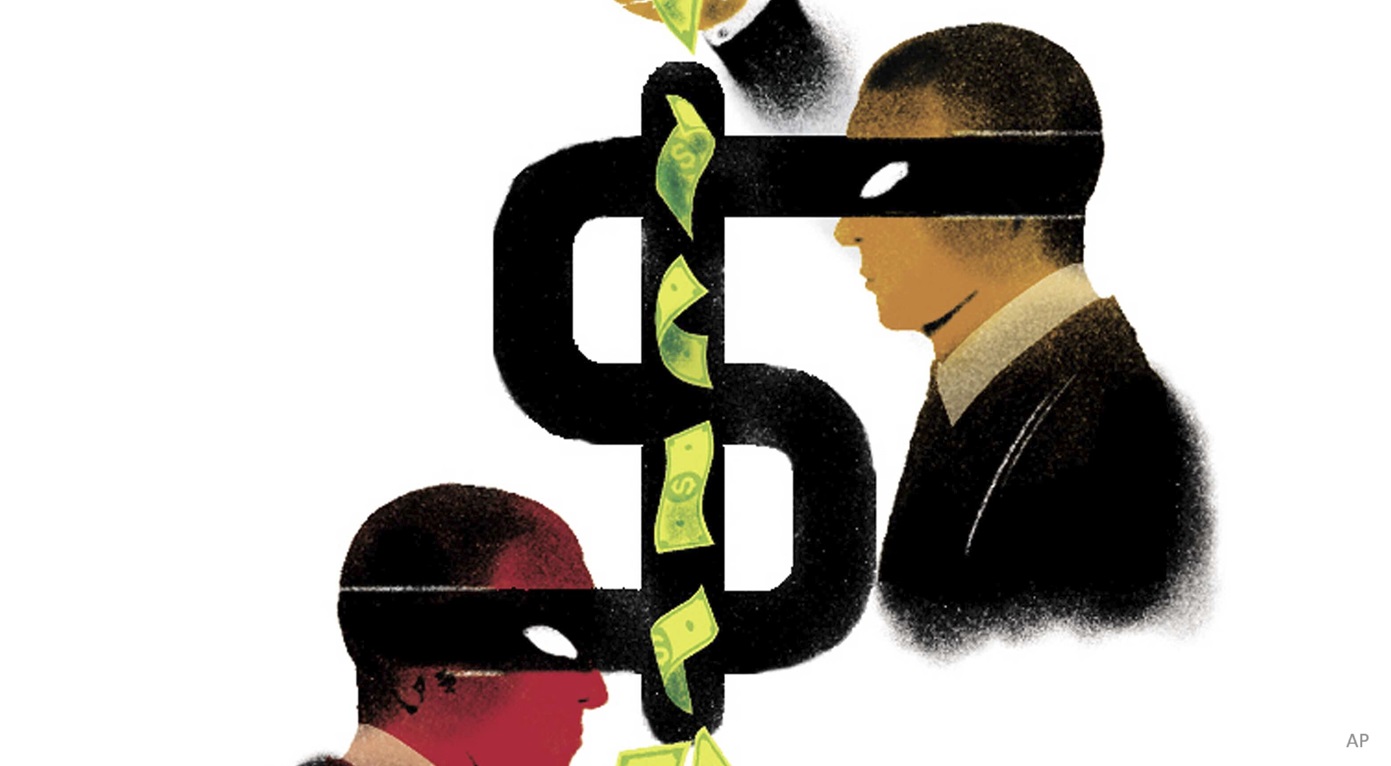The sharp bull run in the Canadian market in 2016, when the S&P/TSX Composite Index racked up a 21.1% total return, raised the bar of expectation for many investors. But strategists and portfolio managers worry things may be different this year. In fact, the market appears to be cooling off so far in 2017 with the index returning just 2.4% over the first three months, compared to a 6.1% gain for the S&P 500 Index in the United States, as of March 31.
For that reason, market analysts have been asking investors to temper their enthusiasm. The issue is further compounded by what many consider to be lofty valuations. Investors who prefer local equities or are just looking to add more Canadian exposure to their portfolio may be struggling to find attractive picks in a domestic market that is expensive at current levels.
This means investors need to pay greater attention to the characteristics of individual stocks and be less focused on the macro environment. It's time to look for companies that can create value relative to their peers -- companies that have strong balance sheets and durable businesses that can weather challenging market conditions.
Select stocks in Morningstar's Canadian equity coverage universe are trading at price/earnings ratios well below the 18.4 level at which the S&P/TSX Composite Index is trading. As well, the current market price of these individual stocks is below their fair value, offering some margin of safety, and potential for future capital appreciation.
Although their fair value uncertainty remains elevated, these companies have demonstrable potential for sustained growth based on business cycle, healthy product demand, pricing power and competitive advantage, according to Morningstar equity research.
| Cameco Corp. | ||
| Ticker | CCO | |
| Current yield | 2.59% | |
| Forward P/E | 22.7 | |
| Price | $15.47 | |
| Fair value | $23 | |
| Data as of Apr. 10, 2017 | ||
One of the world's largest uranium producers, ![]() Cameco (CCO) mines, refines and sells uranium to nuclear reactors in Canada and internationally. The company plans to increase annual uranium production substantially over the next several years.
Cameco (CCO) mines, refines and sells uranium to nuclear reactors in Canada and internationally. The company plans to increase annual uranium production substantially over the next several years.
Cameco shares continue to be undervalued as weakness in uranium prices weigh on profits, says Morningstar equity analyst, David Wang, noting that "2017 will likely mark a turning point for uranium markets, as tightening market conditions drive up pricing."
Cameco, he says, is well positioned to benefit from the staggering 40% rise in global uranium demand by 2025 as China, India, South Korea and Russia continue to pivot to nuclear in order to reduce their reliance on coal, pushing uranium prices higher.
"As one of the largest and lowest-cost producers globally with expansion potential, Cameco should benefit meaningfully from higher uranium prices," says Wang. "The company benefits from stellar ore grades, large scale, long life and an attractive operating cost profile."
The Saskatchewan-based producer is also taking several steps to cut costs and improve efficiency, including laying off employees and paring production, according to Reuters.
Wang, who puts the stock's fair value at $23, says a number of factors could lead to significant earnings growth in the medium term. These include "higher market uranium prices, driven by the expiration of the Megatons to Megawatts program, eventual restart of Japan's idle reactor fleet, and expansion of China's reactor fleet."
The rolloff of long-term sales contracts struck amid lower prevailing market prices could further boost the company's earnings potential, adds Wang.
| Canfor Corp. | ||
| Ticker | CFP | |
| Current yield | - | |
| Forward P/E | 13.5 | |
| Price | $19.13 | |
| Fair value | $22 | |
| Data as of Apr. 10, 2017 | ||
One of the largest softwood lumber producers in the world, ![]() Canfor (CFP) operates throughout North America, with lumber mills in British Columbia, Alberta and the United States. Nearly three quarters of its 6 billion board feet of production capacity is in Western Canada while the rest lies in the Southeastern U.S. It also owns around half of Canfor Pulp.
Canfor (CFP) operates throughout North America, with lumber mills in British Columbia, Alberta and the United States. Nearly three quarters of its 6 billion board feet of production capacity is in Western Canada while the rest lies in the Southeastern U.S. It also owns around half of Canfor Pulp.
"Canfor wrapped up 2016 on a high note, as a strengthening U.S. housing market drove both lumber prices and production substantially higher during the year," says Morningstar's recent sector update, projecting the trend to continue.
Although Canfor exports significant volume to China, the company's profits and performance are closely tied to the health of the U.S. housing market, which continues its upward trend on the back of "favourable demographics, a tighter labour market and looser mortgage availability to catalyze a major improvement in homebuilding activity in the coming decade," according to a Morningstar report.
A market that's bouncing back from a decade of depressed new-home construction, coupled with a growing share of the 80 million millennials entering their 30s portends a strong decade to come for construction, says the report.
Morningstar equity analyst Charles Gross projects robust profit growth for the firm's lumber business, which accounts for about 85% of revenue. His $22 estimate of the stock's fair value is supported by a forecast of more than 20% rise in pricing and segment operating margins, and segment EBITDA climbing to roughly $750 million in 2019 from about $400 million in 2016.
| Air Canada | ||
| Ticker | AC | |
| Current yield | - | |
| Forward P/E | 3.9 | |
| Price | $13.24 | |
| Fair value | $18 | |
| Data as of Apr. 10, 2017 | ||
![]() Air Canada (AC) is Canada's largest airline, serving nearly 40 million passengers annually, with 1,500 daily flights to around 200 destinations. In 2016, the company generated $14.7 billion in total revenue split across passenger services (roughly 90% of revenue), cargo (4%) and other (6%).
Air Canada (AC) is Canada's largest airline, serving nearly 40 million passengers annually, with 1,500 daily flights to around 200 destinations. In 2016, the company generated $14.7 billion in total revenue split across passenger services (roughly 90% of revenue), cargo (4%) and other (6%).
The airline posted solid full-year results for all of 2016 which, combined with pent-up demand over the past 10 years, has bolstered management confidence in the potential for future growth, says a Morningstar sector report. "By promoting more international traffic and expanding its low-cost arm [Rouge], the carrier aims to drive growth," says Chris Higgins, equity analyst at Morningstar.
This summer, Air Canada is adding six new destinations to its international network deepening its presence in Europe and Asia. However, international markets remain highly competitive.
"The capacity additions are costly and its international expansion plans pit it against multiple carriers," says Higgins, who assessed the stock's worth to be $18. He remains optimistic that lower fuel costs, combined with a solid management team, will enable the carrier to remain profitable through a full cycle, "something that has not occurred in the past, and that points to a fundamentally different company emerging."
Since 2009, Air Canada has been implementing a transformation program aimed at reducing its cost. Management delivered savings of $530 million, far surpassed the $500 million target, as the company went from posting negative operating profit in 2009 to operating margins of 9.2% in 2016. The feat earned the company's chief financial officer, Michael Rousseau, Canada's CFO of the Year award for 2017.
| West Fraser Timber Co. Ltd. | ||
| Ticker | WFT | |
| Current yield | 0.47% | |
| Forward P/E | 10.8 | |
| Price | $59.56 | |
| Fair value | $58 | |
| Data as of Apr. 10, 2017 | ||
![]() West Fraser Timber (WFT) is one of the largest softwood lumber producers in the world that also produces wood panels and pulp products. The firm has 6.5 billion board feet of production capacity spread across Western Canada (63% of the total) and the Southeastern United States (37%).
West Fraser Timber (WFT) is one of the largest softwood lumber producers in the world that also produces wood panels and pulp products. The firm has 6.5 billion board feet of production capacity spread across Western Canada (63% of the total) and the Southeastern United States (37%).
Like its peers, West Fraser's profits are closely linked to the fate of the U.S. housing market. Looser mortgage availability and expectation of a major improvement in homebuilding activity in the U.S. conspire to create a tailwind for the company. Morningstar forecasts U.S. housing starts to peak at 1.9 million in 2020 "as pent-up demand is unleashed," settling to "a demographically sustainable" 1.5 million in 2025.
Longer-term demand trends for wood product companies are promising, says Gross, who pegs the stock's value at $58. “Despite challenging market conditions, West Fraser has been reinvesting in its business with an eye on housing recovery,” says Gross.
The company, he adds, cut back its production in Western Canada, which is hampered by the mountain pine beetle infestation of regional forests, and bought lumber capacity in the Southeastern U.S. and Alberta, amplifying its exposure to a U.S. housing revival.
These steps have prompted Gross to forecast robust profit growth for West Fraser's lumber and panel businesses (accounting for 80% of revenue), and adjusted EBITDA to jump from about $600 million (2015) to $1.5 billion in 2020.
Complete access to Morningstar's research on equities, mutual funds and exchange-traded funds is available to subscribers to Morningstar Canada Premium.









:quality(80)/cloudfront-us-east-1.images.arcpublishing.com/morningstar/54RIEB5NTVG73FNGCTH6TGQMWU.png)








